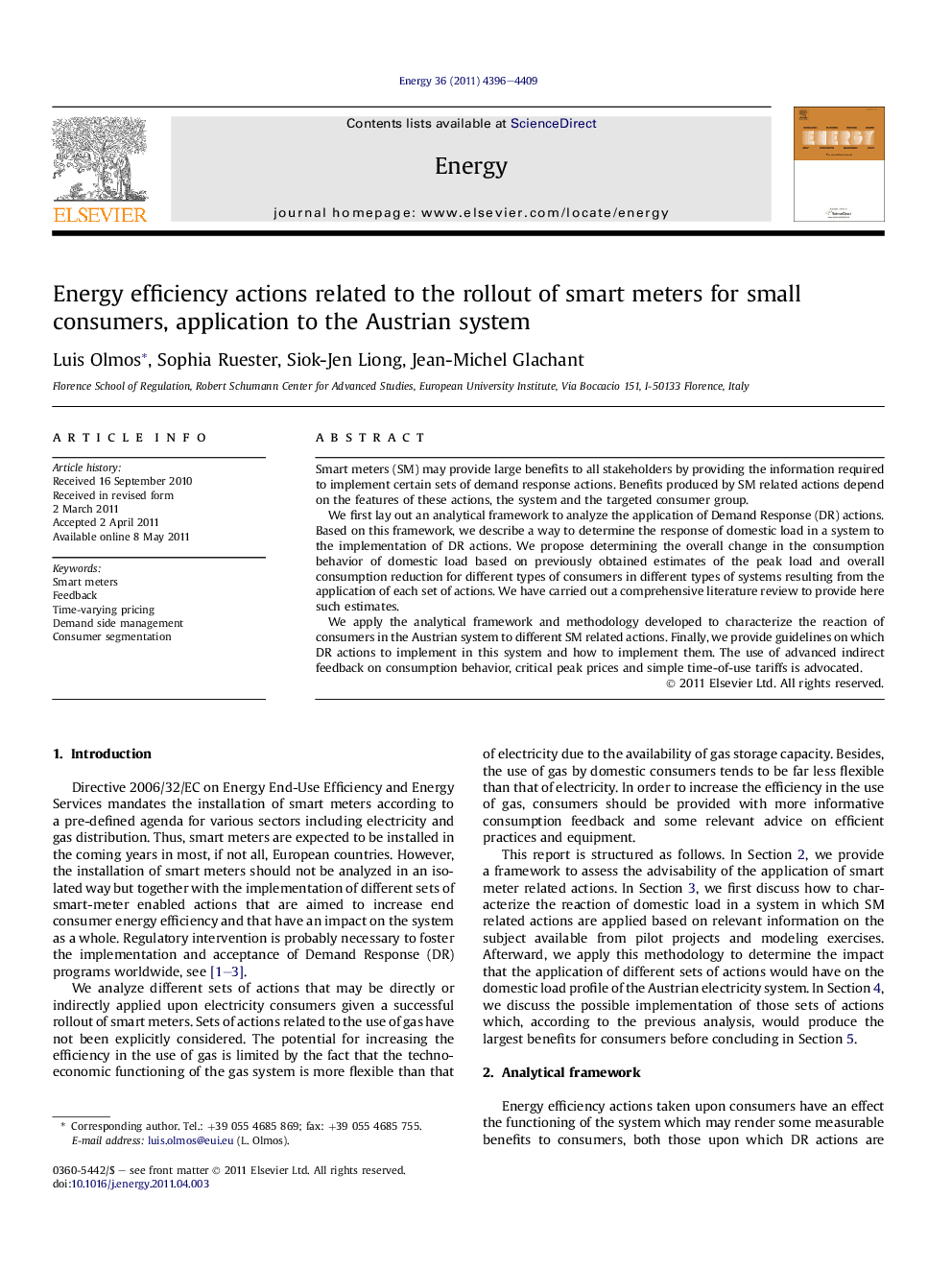| Article ID | Journal | Published Year | Pages | File Type |
|---|---|---|---|---|
| 1734200 | Energy | 2011 | 14 Pages |
Smart meters (SM) may provide large benefits to all stakeholders by providing the information required to implement certain sets of demand response actions. Benefits produced by SM related actions depend on the features of these actions, the system and the targeted consumer group.We first lay out an analytical framework to analyze the application of Demand Response (DR) actions. Based on this framework, we describe a way to determine the response of domestic load in a system to the implementation of DR actions. We propose determining the overall change in the consumption behavior of domestic load based on previously obtained estimates of the peak load and overall consumption reduction for different types of consumers in different types of systems resulting from the application of each set of actions. We have carried out a comprehensive literature review to provide here such estimates.We apply the analytical framework and methodology developed to characterize the reaction of consumers in the Austrian system to different SM related actions. Finally, we provide guidelines on which DR actions to implement in this system and how to implement them. The use of advanced indirect feedback on consumption behavior, critical peak prices and simple time-of-use tariffs is advocated.
► System and consumer features determine households’ potential benefits from a Demand Response (DR) action. ► Consumers’ perception of the net benefits of actions determines their actual reaction. ► Consumers’ reaction can be characterized by their peak load and consumption reduction. ► DR actions implemented should be accepted and understood by all stakeholders involved.
